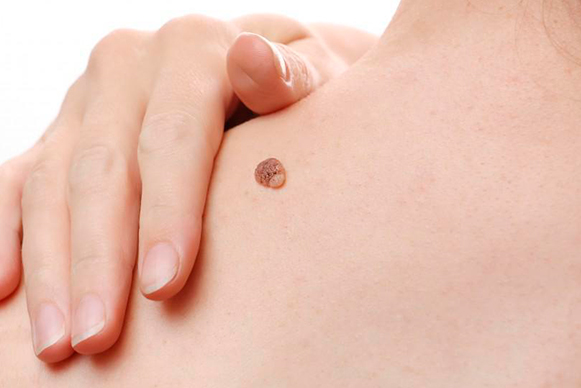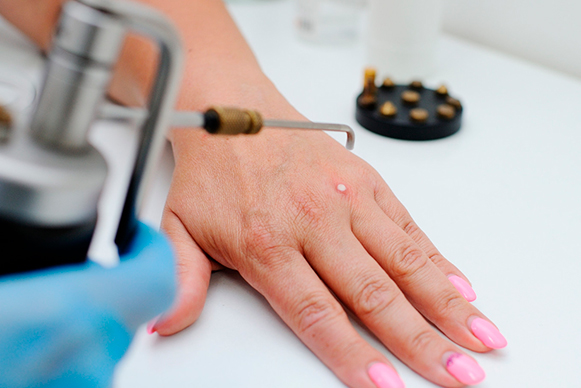Unit R-04, Marinascape Mall, Marina, Dubai, UAE
Unit R-04, Marinascape Mall, Marina, Dubai, UAE
Warts are common skin growths caused by the human papillomavirus (HPV). They are typically small, rough, and raised, with a texture similar to a cauliflower or a solid blister. Warts can appear on various parts of the body, including the hands, feet, face, and genital area. While they are generally harmless, warts can be unsightly, uncomfortable, or contagious.
Warts are caused by the HPV virus, which enters the body through tiny cuts or breaks in the skin. Certain factors, such as a weakened immune system, close contact with someone who has warts, and walking barefoot in public places like swimming pools or locker rooms, increase the risk of developing warts.
While most warts can be treated with over-the-counter medications, it is advisable to see a doctor if the warts are painful, rapidly spreading, or located on the face or genital area. A healthcare professional can provide a proper diagnosis and recommend appropriate treatment options

At drypSKin, we offer various treatment options for wart removal. These may include topical medications, laser therapy, or surgical removal for more persistent or larger warts. The choice of treatment depends on the type, size, and location of the wart

The benefits of wart removal go beyond cosmetic improvement. Treatment can alleviate discomfort, reduce the risk of warts spreading to others, and prevent the formation of new warts. It is important to follow post-treatment care instructions provided by the doctor to promote healing and minimize the chances of recurrence.
Yes, warts are contagious. The HPV virus can be transmitted through direct contact with an infected person or by touching surfaces or objects that have come into contact with the virus.
Some warts may resolve on their own over time, but it can take months or even years. Treatment can help expedite the process and minimize discomfort.
Warts can recur, especially if the underlying HPV infection persists. It is important to follow post-treatment care instructions and maintain good hygiene practices to reduce the risk of recurrence.
While it's not always possible to prevent warts completely, practicing good hand hygiene, avoiding direct contact with warts, and keeping the skin healthy and moisturized can reduce the risk of contracting the virus.